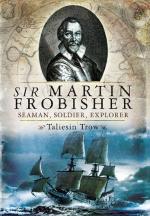|
This section contains 334 words (approx. 2 pages at 300 words per page) |
Encyclopedia of World Biography on Martin Frobisher, Sir
Sir Martin Frobisher (ca. 1538-1594), English explorer, naval commander, and soldier, initiated Europe's search for a Northwest Passage to the Orient and discovered the Hudson Strait.
Martin Frobisher, born in Yorkshire, went to London as a boy to be educated by a relative. He showed no aptitude for book learning, so his kinsman sent him to sea. Before reaching manhood Frobisher had been on two voyages to the Guinea Coast. On the second he was captured and handed over to the Portuguese garrisoning São Jorge da Mina, who allowed him to return to England. For a time he engaged in piracy, though he never attacked English ships.
By the 1570s England had largely abandoned hope of finding a Northeast Passage to Asia, and thoughts turned to the Northwest. Frobisher formed a partnership with Michael Lok, a man of some means and learning. Frobisher's first voyage, in 1576, took him to Frobisher Bay in Baffin Island, which he at first claimed as the strait; he also captured an Eskimo whom Lok supposed was a Tatar from north of China.
English investors, including Queen Elizabeth, overlooked Frobisher's former piracy to pour money into Lok's Company of Cathay. Frobisher sailed again in 1577, this time to ship home what he mistakenly thought was gold-bearing ore. Lok still felt hopeful and sent Frobisher back in 1578. This time the mariner discovered the Hudson Strait, which he followed for nearly 200 miles and acknowledged to be a more promising Northwest Passage than Frobisher Bay. He brought home more dirt and rocks, but English confidence had evaporated; Lok went to a debtors' prison and Frobisher sought other employment.
Frobisher accompanied Sir Francis Drake to the West Indies in 1585-1586. When Philip II's Spanish Armada entered the English Channel in 1588, Frobisher's part in the fighting was distinguished, and he received knighthood. He died of a bullet wound, received near Brest, where he had been sent to relieve the Spanish siege. He lived just long enough to be taken back to Plymouth.
|
This section contains 334 words (approx. 2 pages at 300 words per page) |


